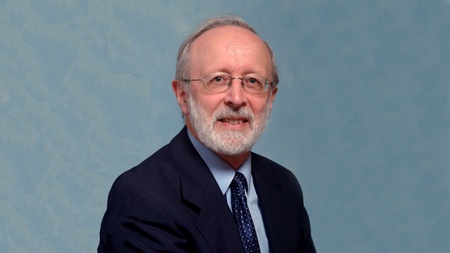Emeritus Professor Roger Pertwee has been celebrated with a lifetime achievement award for his cannabis and cannabinoid research.
Professor Pertwee received the accolade from the International Cannabinoid Research Society (ICRS) for his highly cited research into pharmacological actions of constituents of cannabis known as phytocannabinoids, and of cannabinoids designed and synthesized by medicinal chemists.
Professor Pertwee’s research into cannabinoids began at Oxford University in the late ‘60s and continued after he moved to the University of Aberdeen in 1974.
In the early 1990s, Professor Pertwee was a co-discoverer of endocannabinoids: pharmacologically active endogenous cannabinoids produced in various parts of our own bodies including the brain. At that time he also helped to found the ICRS, and worked with the UK government, medical organisations and UK and US multiple-sclerosis patients who were self-medicating with cannabis. This work helped to encourage new medicalisation of cannabis-derived cannabinoids.
More recently, cannabinoid research in his laboratory led to the discovery that cannabinoid receptors that mediate the cannabis-induced “high” and also many of the often beneficial effects of endocannabinoids, contain allosteric sites. These are sites through which the effects of drugs that activate cannabinoid receptors directly can be strengthened or weakened by “allosteric modulators”. His more recent pharmacological research has also been directed at developing such allosteric modulators and at seeking out cannabinoid-related potential therapeutic treatments for disorders such as anxiety, chemotherapy-induced nausea and vomiting, neuropathic pain, ocular glaucoma and blood cancer.
Professor Pertwee gave his one-hour lifetime achievement award lecture in Maryland, USA earlier this month. The lecture was entitled “Cannabinoid pharmacology: my first half century”.


